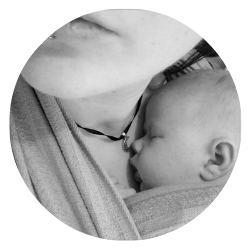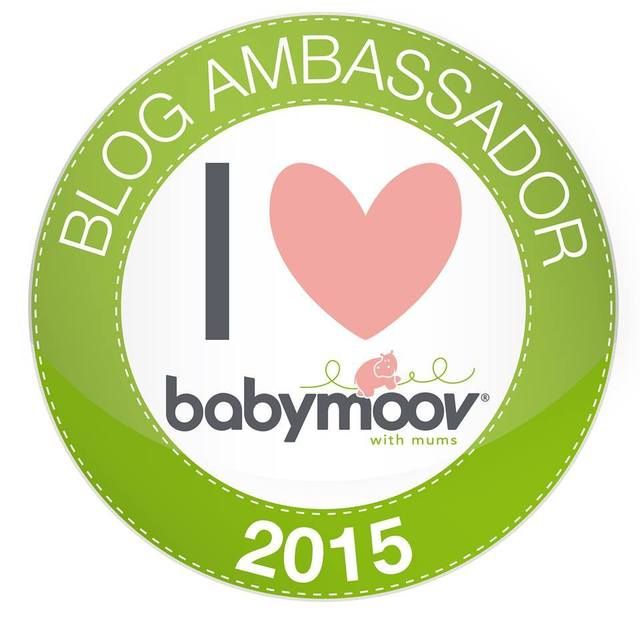When the emotions are bigger than the child.
Thursday, 8 May 2014
As an adult I think we're often guilty of neglecting to acknowledge the immensity and complexity of emotions that young children experience. For some absurd reason we seem to assume that until they reach puberty they rely heavily upon the basic instincts of emotion such as sadness, love, happiness and anger. To an extent they do, yet the problem is that for crude basic emotions, they're actually incredibly large emotions. A tantrumming child isn't merely being a brat, they're often struggling and lacking the capacity to contain a reactive emotion. Sometimes an emotion simply becomes too hard and too big to manage. It has to go somewhere so quite literally it explodes. It comes to the point where they can't control the emotion so the emotion begins to control them. They're furious, indignant and upset. Words are eaten by the flames and the ability to rationally communicate is replaced with lashing out and primal verbalisations.
Occasionally if we're lucky enough we can spot the signs of it brewing and intercept through validating it before it escalates and helping them to understand it; to reason through it with them. Other times, we're not so lucky. At this point reasoning is futile. They're unable to contain the emotion, the emotion is controlling them so they have an inability to reason with it, let alone with you. The more you try to invalidate and extinguish it, the stronger hold it takes over them and the harder they'll fight against you and reason. It's tempting to issue sharp words yet since when does fire cancel fire? Rather than diluting it, in our quest to extinguish it we only feed it. Their campfire is now a bonfire
It doesn't matter how ridiculous/annoying/pointless we feel the catalyst was, to the preschooler experiencing it, it matters. At this moment in time, it's all that matters.
They're not thinking, they're feeling. The worst part is they can't stop feeling. The feelings are consuming them. And growing.
Yet anger and frustration can be contagious.
Our job is to try and not catch it.
They need us to remain calm more than ever. They're neither ready nor able to be calm right now yet they need us to be, to represent the calm after the storm.
This isn't to say we mollycoddle them and encourage their outbursts. They'll say hateful things ("I HATE you!") they may even lash out physically. We need to remember this is the emotion not the child.
Often I'll try to stay calm (no easy feat for me an i'm only human, I often fail) and let them know i'm here yet I'm not talking to them until they're able to listen. Sometimes, when it's got this far all you can do is let the emotion burn itself out. Don't retaliate. If he's screaming at me, I'll turn away. If he's hitting, i'll block. The idea is to dilute this. If only one person is screaming or lashing out without a reaction or retaliation, it will eventually cancel itself out. Starve the fire.
Eventually they will calm. Often he'll storm away and remove himself from the situation be it hiding under his train table or sitting in the hall. On a good day he'll even return and apologise, here is the opener, he's ready to talk. More importantly, he's ready to listen. Sometimes he'll just look so exhausted and scared by the enormity of his emotions that if he appears calmer i'll ask him if he'd like a cuddle to help him calm down. This isn't a reward nor a forgiveness, this is the basic human need for contact. For security. This is where we can dissect the emotion that triggered all this, to talk about what happened and to reiterate why things happened or decisions were made. To explain the effect their behavior and emotions have on others. There is no blame here, only acknowledgement. You can still acknowledge that perhaps something you said or did caused this whilst maintaining that what you said or did was appropriate and right. It's important we validate the emotion, it's okay not to like what they're told or asked to do, it's okay to feel angry etc whilst still enforcing that screaming/lashing out isn't okay and your initial decision isn't changing. Reiterate why you made your initial decision, the one they so disliked. If we want them to lean to accept what we/decide, we too have to learn to accept their feelings towards it. We can tell them what they can/can't have, where they can/can't go etc but we should never attempt to tell them what they can or can't feel about it. You can still accept something without liking it.
They probably don't understand their reaction themselves, they'll be exhausted and a little perplexed. This is why we need to trace it back to the emotion that triggered it. The more we teach them it's okay to feel something, the easier it will be to then explain that it's not always okay to act on it.
Use feelings in explanations. Tell them how being shouted at or hit made you feel. Explain the impact their words have on you. Ask them how they'd feel if someone they loved said they hated them, or hit them. Use basic rudimentary emotions that they are struggling with to explain this such as sad or hurt.
I never ask for nor demand an apology. I feel prompted apologies are meaningless and strip the child of the process of reflection and regret. They become a get out of jail free card and meaningless. As such, he apologises in his own time. When he feels it. When he thinks it. I'll often thank him for apologising and ask him what he's sorry for/about again opening up the channels for reflection and understanding. It's important they understand why they're sorry, to do that they have to feel it. Sometimes the sorry may come immediately other times it will take it's time yet strangely as much as you crave the 'sorry' it's often more appreciated when it's later then you expected it. It shows they've thought about it.
Recently The Preschooler opened my eyes to another aspect of emotion that I'd somehow not considered before, their inability to combine two battling emotions. They can feel frustration and anger, they can feel happiness and excitement yet what they can struggle to comprehend is love and anger, love and hate etc.
The Preschooler frequently screams at me lately that he hates me, to which i'll reply along the lines of how that's quite sad or a shame because I still love him.
One evening when he'd been particularly inflammatory and made me terrifically cross, I told him I loved him. He surprised me when he replied that I can't love him because i'm angry with him. He genuinely couldn't grasp the concept that you can be angry with someone, hate what they say/do yet still love them. He appeared to believe that all emotions are transient and you can only occupy one at a time. This explains the 'i hate you!' in place of 'I hate what you're saying/doing' The emotion is a whole and the person is a whole, thus if you dislike what the person has done you must thus dislike the person along with it.
I'll admit I've never given thought to this before; the difficulty a child faces accepting multiple emotions and worse, tangled emotions. Sometimes we have to go back to basics.
Yet it absolutely reinforces that my initial reaction to his hate speech was to state that I loved him. This is the seed that will grow the understanding that you can love someone yet dislike them at the same time. That some emotions are unconditional. That you can love someone in-spite of them as well as because of them. That he realises even when i'm horrifically cross with him, I still love him.
At times he'll try to make sense of it and when calm he'll either say 'I'm sorry for saying I hate you' or more amusingly 'I hate you a million and love you one' the latter is new. The latter is showing the growing understanding that you can feel conflicting emotions about someone simultaneously.
I don't think we always give children enough credit for the steep learning curves they go through emotionally. We often underestimate their level of understanding and their ability to cope with what they feel.
Not being allowed to play ball inside might be logical to us yet that doesn't mean that to them it's not the end of the world.
They must learn to understand themselves before they can understand the world around them and sometimes, maybe, just maybe we just need to remember to try and understand them too.
Subscribe to:
Post Comments (Atom)

 The somewhat inane ramblings of a semi-crunchy 30-something stay at home mum based in the NW of the UK. Mum of Thing One (10yrs), Thing Two (8yrs) and The Dude (5yrs) & Moomin (Born Aug 2014). Wife of the long suffering Husband.
In search of the meaning of life, sanity and Gin.
Breastfeeding | Co-sleeping | Babywearing | Mental Health | M.E | Left-wing
The somewhat inane ramblings of a semi-crunchy 30-something stay at home mum based in the NW of the UK. Mum of Thing One (10yrs), Thing Two (8yrs) and The Dude (5yrs) & Moomin (Born Aug 2014). Wife of the long suffering Husband.
In search of the meaning of life, sanity and Gin.
Breastfeeding | Co-sleeping | Babywearing | Mental Health | M.E | Left-wing









0 comments:
Post a Comment
I love receiving comments so thank you for taking the time to leave one. Don't worry if your comment doesn't show up immediately, in order to avoid that pesky captcha I've activated comment moderation instead so as soon as i'm online i'll publish your comment :)
If you like the blog feel free to link it on your page.